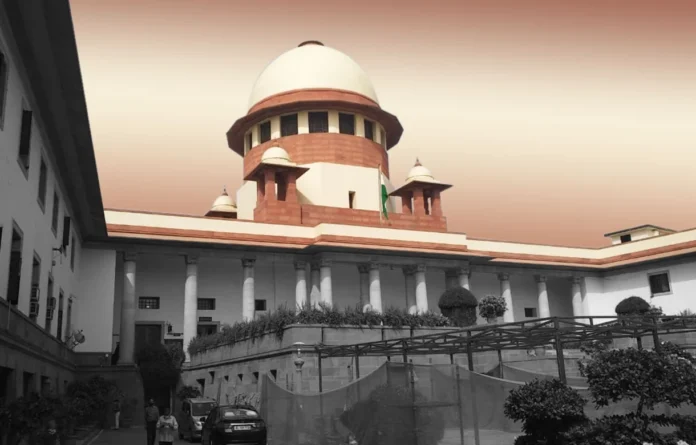The Supreme Court on Tuesday explored the possibility of putting in place a new system to check on the accused persons, who were not released from jail even after the grant of bail, on account of various reasons.
The Division Bench of Justice Abhay S Oka and Justice Augustine George Masih suggested that cases of such persons could be automatically listed after sometime before the court which granted them bail in the first instance, so that corrective steps could be taken.
The top court of the country passed the order on a suo motu case dealing with the grant of bail in cases where appeals of convicts against their conviction have remained pending for long.
The Division Bench took into account the fact that despite being granted bail, some accused were not released from jail on account of various reasons, including the inability to meet bail conditions such as expensive sureties.
It observed that specially conditions regarding giving bonds/surety after getting bail from the court, and these individuals (referring to poor accused persons) could not do compliance of this.
Appearing as Amicus Curiae, Senior Advocate Liz Mathew contended that the concerned court that initially granted bail, could take suo motu cognisance of such situations.
The Division Bench said that a body should be found, which would inform the court to take up the cases of those prisoners who were not released from jail, after the grant of bail.
The counsel representing the National Legal Services Authority (NALSA) apprised the Court about a Central scheme meant to support to poor prisoners, which granted financial aid up to Rs 40,000 for undertrials and Rs 25,000 for convicts.
The Court directed the Amicus to place the scheme on record.
It observed that the Court would look into the procedure of applying for this scheme and the time it took for granting relief to the prisoners (accused/convict) granted bail by the court.
Earlier, the top court of the country had issued a slew of directions to ensure that convicts were aware of their options regarding applying for permanent remission (premature release from prison) or challenging the rejection of such applications.
The Division Bench further considered the compliance reports filed by various States and Union Territories on how they handled remission applications from prisoners.
The State of Manipur was directed to consider establishing a mental care facility ward in its prison to deal with prisoners suffering from mental illnesses. The Manipur government was further asked to ensure complete implementation of the Mental Healthcare Act, 2017.
The suggestion was given by the Court after taking note of five prisoners seeking transfer from jail to a mental health centre on the ground that they were suffering from a mental ailment.
The Division Bench had earlier directed the inspection of these prisoners by a medical board. The medical report said that these prisoners were suffering from mental instability, however, it added that the State did not have an adequate mental health facility to treat them.
The matter was listed for further hearing on December 18, 2024.


